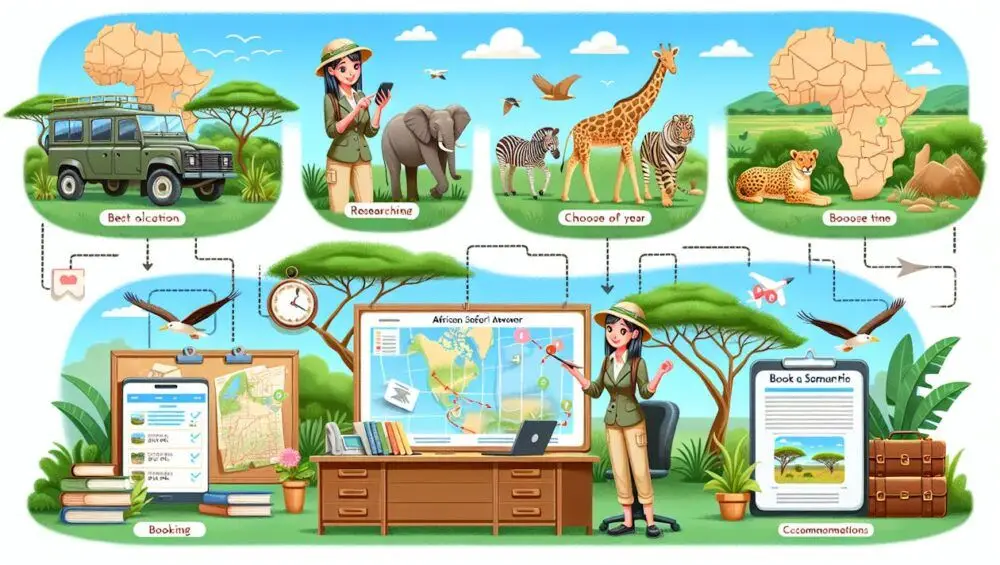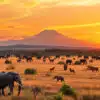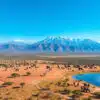Understanding the Different Types of Safaris
When planning an African safari adventure, it’s essential to learn about the various kinds of safaris available to suit different interests and styles. The classic game drive is the most familiar, typically done in a 4×4 vehicle allowing for a comfortable and expansive view of wildlife and landscapes. Walking safaris bring you closer to the ground, offering a more tactile experience and a chance to track animals on foot. For an aerial perspective, some opt for hot-air balloon safaris at sunrise, providing stunning views over the savannah. Additionally, there are boat safaris in areas like the Okavango Delta, where you glide through water channels getting up-close sightings of aquatic species.
Determining the Best Time to Go
Timing is crucial when booking an African safari. It’s important to consider the climate and wildlife patterns of the specific region you plan to visit. The dry season often yields the best wildlife viewing as animals congregate around water sources and vegetation is less dense. However, the wet season comes with its own merits, including fewer tourists, lower prices, and the chance to witness the birth of new animals and migratory birds. Research the best time for viewing the Great Migration in East Africa or for optimal game viewing in Southern Africa to maximize your experience.
Choosing the Right Country and Park
Africa’s vastness hosts numerous countries, each with its unique wildlife parks and reserves. Kenya and Tanzania are famous for the Masai Mara and Serengeti, respectively, particularly for those hoping to witness the Great Migration. Botswana’s Okavango Delta is renowned for its water-based wildlife encounters, while South Africa offers well-equipped reserves like Kruger National Park. Consider what animals you wish to see; if the Big Five is your goal, several parks across the continent offer this. Alternatively, if you’re interested in tracking gorillas, Uganda and Rwanda would be your go-to destinations.
Selecting Accommodation Options
Accommodation in safari regions ranges from luxurious lodges to mobile tented camps. Luxury lodges provide comfort and exclusivity with amenities such as private plunge pools and butler services. Tented camps can range from basic to deluxe, offering a more authentic bush experience. Some travelers prefer fixed tented camps, which have a permanent location, while others may opt for mobile camps that move with the wildlife migrations. Guided group tours often use designated campsites and are a more budget-friendly option.
Planning Your Itinerary
As safaris are often a once-in-a-lifetime trip, a well-planned itinerary is vital. Consider a combination of different parks to witness diverse ecosystems and animal behaviors. Consulting with safari specialists can lead to personalized itineraries that cater to your preferences, whether it’s birdwatching, photography, or cultural interactions. Ensure you also allow time for travel between different areas as distances in Africa can be vast.
Health and Safety Considerations
Before embarking on your safari, ensure you’ve addressed all health and safety concerns. Visit a travel clinic for advice on vaccinations and malaria prophylaxis. Familiarize yourself with the visa requirements of your chosen destination and arrange comprehensive travel insurance. When on safari, always obey the guidance provided by your rangers and guides – they prioritize your safety and the protection of the wildlife.
Booking with a Reputable Company
Choosing a reputable safari company is crucial. Look for operators with strong conservation credentials and positive reviews. They should have experienced guides, well-maintained vehicles, and an excellent safety record. A good operator will also promote ethical wildlife interactions, ensuring that your presence supports conservation efforts and the local community.
Preparing for The Journey
Finally, prepare adequately for your adventure. Pack light, breathable clothing, but remember warmer layers for evening and early morning drives. Binoculars, a camera with a good zoom lens, and extra memory cards should not be overlooked. Also, pack sun protection, insect repellent, and a good hat. Sturdy shoes are essential, especially if you plan on a walking safari.
An African safari is an unparalleled experience, where each day brings new wonders and spellbinding encounters with the wild. By following this guide, you’re on your way to booking the adventure of a lifetime, with memories that will last forever.



